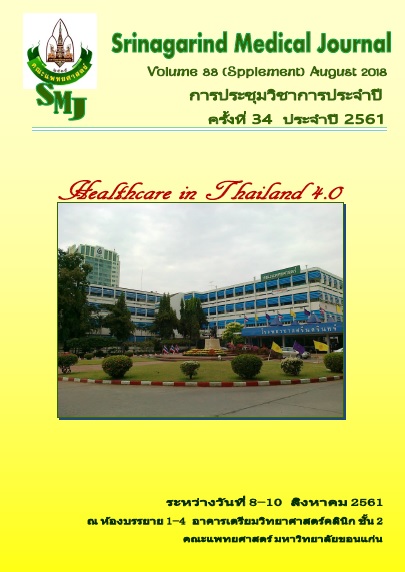Association between the Reductions of Biochemical Components and Expressions of Tyrosine Phosphorylated Proteins, Androgen Receptor, and Heat Shock Protein 70 in Rat Seminal Vesicle Treated with Valproic Acid
Keywords:
Rat seminal vesicle; valproic acid; biochemical components; tyrosine phosphorylated proteins; androgen receptor; heat shock protein 70Abstract
Background and Objective: Valproic acid (VPA), used as anti-epileptic and cancer drug, has been proven to have reproductive toxicity effects especially on testicular structures and functions. VPA also can cause atrophy of seminal vesicle, a major micronutrient source of mature sperm after ejaculation. However, the effect of VPA on the associations between the qualities of seminal fluid and expressions of essential proteins in seminal vesicle tissue has never been documented. This study aimed to investigate the effects of VPA on the levels of seminal fluid components and expressions of seminal essential proteins including tyrosine phosphorylated proteins, androgen (AR) receptor, and heat shock protein 70 (Hsp70)
Methods: Sixteen Sprague-Dawley male rats (180-200 g) were divided into control and VPA treated groups (each group, n = 8). Control rats were injected with saline while the experimental animals were injected with VPA (500 mg/kgBW) into intraperitoneal cavity for 10 consecutive days. At the end of experiment, seminal vesicles were weighted and examined for histology. Then seminal fluids were squeezed out to be analyzed for biochemical components. In seminal protein expressions, the proteins of seminal fluids and tissues were separated by SDS-PAGE and specifically detected for tyrosine phosphorylated proteins, androgen rector, and Hsp70 by immuno- western blotting.
Results : The results showed that atrophy with decreased epithelial height of the seminal vesicles was observed in VPA treated rats. In addition, seminal fluid volume and major biochemical components in the VPA-treated group were significantly decreased (P ≤ 0.05) compared to control. Moreover, VPA changed the intensity patterns of tyrosine phosphorylated proteins and significantly decreased the expressions of AR and Hsp 70in both seminal fluid and tissue of VPA treated animals.
Conclusions: Atrophic seminal vesicle treated with VPA was associated with reductions of seminal fluid components and protein expressions such as phosphorylated proteins, AR, and Hsp 70. It was suggested that VPA affected seminal vesicle structure and function, resulted in low quality of seminal plasma. This finding also can be used to explain the cause of male sub/ infertility in VPA treating patients.




